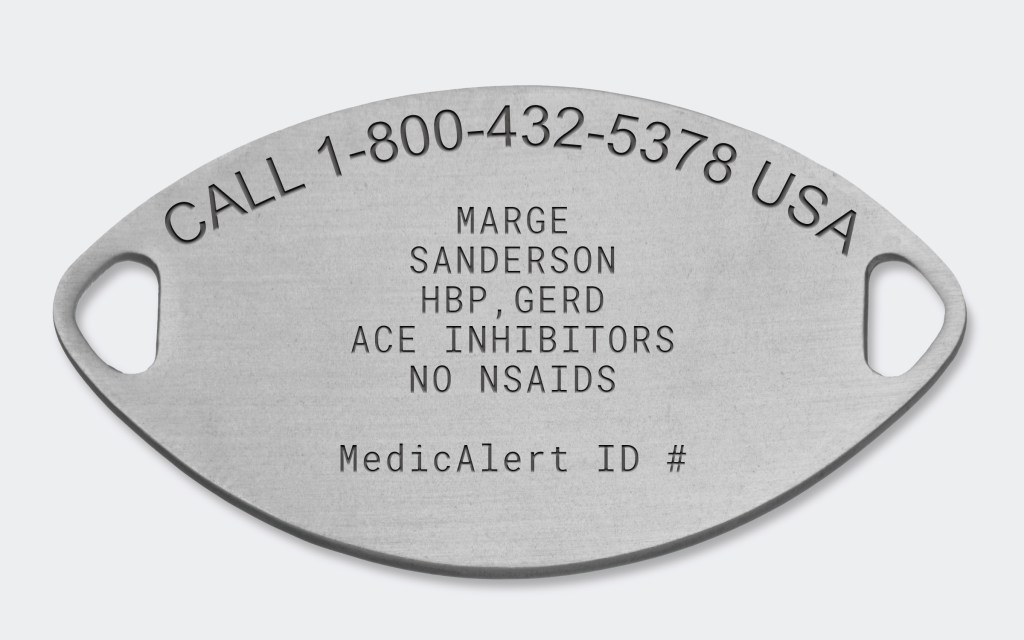What to engrave on your MedicAlert medical ID for ACE inhibitors:
MedicAlert offers free custom engraving on all our medical ID products. Engravings on medical IDs for ACE inhibitors should include any critical medical information that can protect and save lives in an accident or medical emergency, for example:
- Taking ACE inhibitors
- Current medical condition
- Emergency contact information

Sample engraving. Consult our team if you need help engraving your medical ID for ACE inhibitors.












